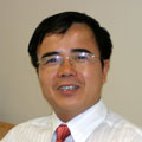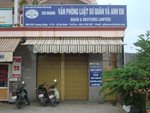In Vietnam, February and March are supposed to be a good time for relaxation, after the exuberant Lunar New Year.

But Vietnamese media have been absorbed since the end of January in a difficult and sensitive debate - over the leadership of the Communist Party, or rather a lack of it.
Online news services and newspapers have run discussion forums and printed articles containing questions which were impossible to ask a few years ago.
The debate had become so heated that the party's newspaper has recently stepped in to try to prevent it from "running in a dangerous and harmful way".
It all began early this year with a formal request by the party leadership for people's views on its political platform in the run-up to its 10th National Congress, expected to take place in the next few months.
This has provided a rare opportunity for many intellectuals, journalists, lawyers and even government officials to criticise what is perceived to be widespread corruption and abuse of power by a number of the party mandarins.
For example, economist Bui Kien Thanh said on a webcast talk show on Vietnamnet, one of the country's leading online news services, that "if the party is genuinely serious about democracy, they must allow Vietnamese people to choose their political leadership".

Another guest speaker, Nguyen Dinh Luong, also made very direct comments, saying: "There have been many lies about the government's economic achievement, and in general, a lot of political diseases in the system, due to bad policies and poor leadership."
Nguyen Dinh Luong is no dissident, but a high government official who represented Vietnam at the US-Vietnamese Trade Agreement negotiations some years back.
In the south, pro-reformist Tuoi Tre newspaper has launched a series of articles by Nguyen Trung, a former diplomat and currently an adviser to Prime Minister Phan Van Khai.
These have criticised "lack of democracy" in the party, and claim it has lost its direction after two decades of economic reforms.
Online users have flooded Tuoi Tre's forum with comments about Nguyen Trung's views.
Some have gone so far as to question the party's control over government departments and over almost every aspect of the economy.
The Communist Party of Vietnam currently has a final say in the nomination of all senior government officials to important posts in all ministries and state-owned co-operations, where many corruption cases have recently been investigated.
Gambling scandal
In January, Vietnamese police arrested Bui Tien Dung, a senior government official who was alleged to have bet more than $2m (£1.1m) of state money in illegal football gambling.
Such cases have given the forum participants the opportunity to make their point.
Recently the debate has moved from underground bulletins and online letters by dissidents and religious groups to public life.
And more people have joined the discussion, by sending out letters to the media to call for political change. Some have even called for a pluralistic political system.
"Pluralism has worked well in economy over the last 20 years, now it's time to try political pluralism too," Le Cong Dinh, a lawyer in Ho Chi Minh City, told the BBC's Vietnamese Service.
Such talk must be alarming the conservative faction in the party. In a late February issue of Nhan Dan newspaper, the party's chief ideologue, Nguyen Duc Binh, launched an attack on those who had questioned the principle of socialism.
A better place to discuss socialism and the future of the party, he argued, should be an internal magazine, instead of in the national and regional press.
He said, for example, that a new plan to allow businessmen to join the party was "unnatural".
"Open discussion, through all sorts of letters disseminated around the country, is harmful," he said.
Nguyen Duc Binh's intervention suggests that those expecting a big change in Vietnamese politics may be wrong.
However, modern Vietnam has changed so much that it is difficult for the party to stick to the traditional interpretation of Marxism-Leninism. Do Ngoc Ninh, director of a party think-tank in Hanoi, dismissed Nguyen Duc Binh's view as "his own private opinion".
Twenty years of economic reform have also encouraged a number of young professionals, such as lawyers Le Cong Dinh, Le Quoc Quan and journalist Phan The Hai, to speak out about politics.
And, still in their mid-30s, they can afford to wait for change.


1 comment:
So a senior VCP official, Bui Tien Dung, was arrested for stealing or embezzling $2,000,000. Funny, how Western "anti-war" slime (i.e. pro-communist scum) told us that corruption in Vietnam would go the way of the dinosaurs when the "corrupt" Thieu regime disappeared. Another left wing lie to go along with "nerve gas used on defectors in Laos."
Post a Comment